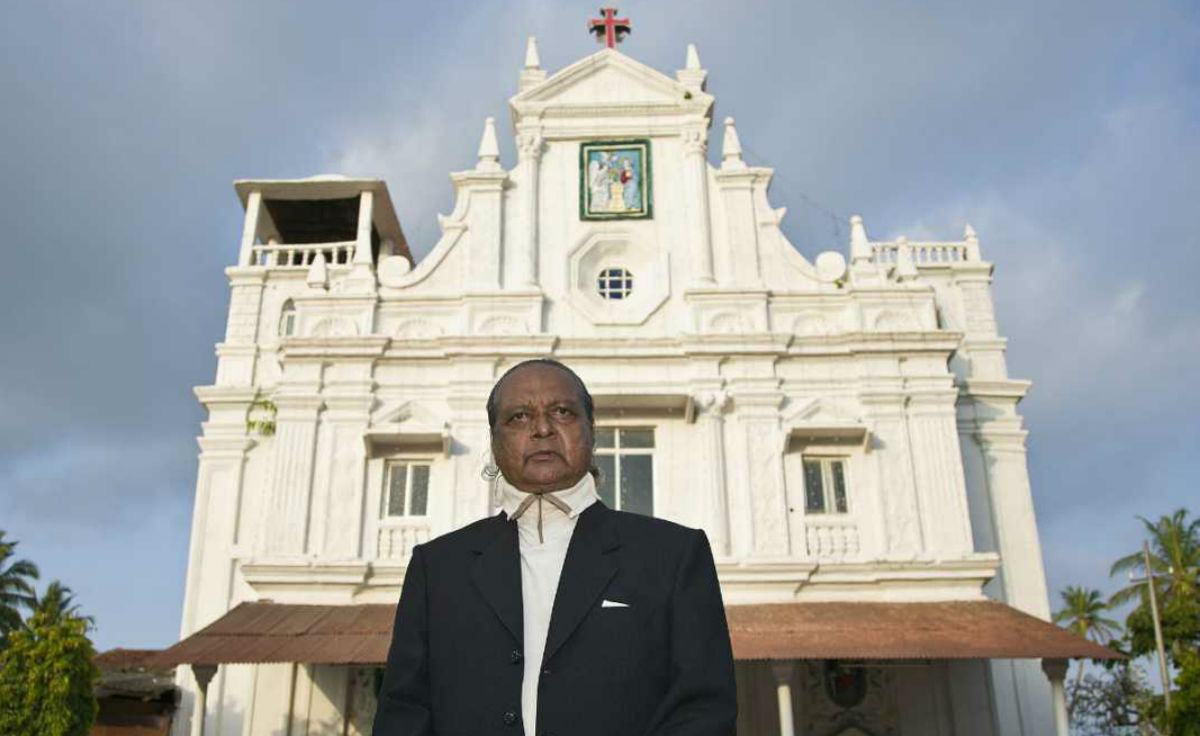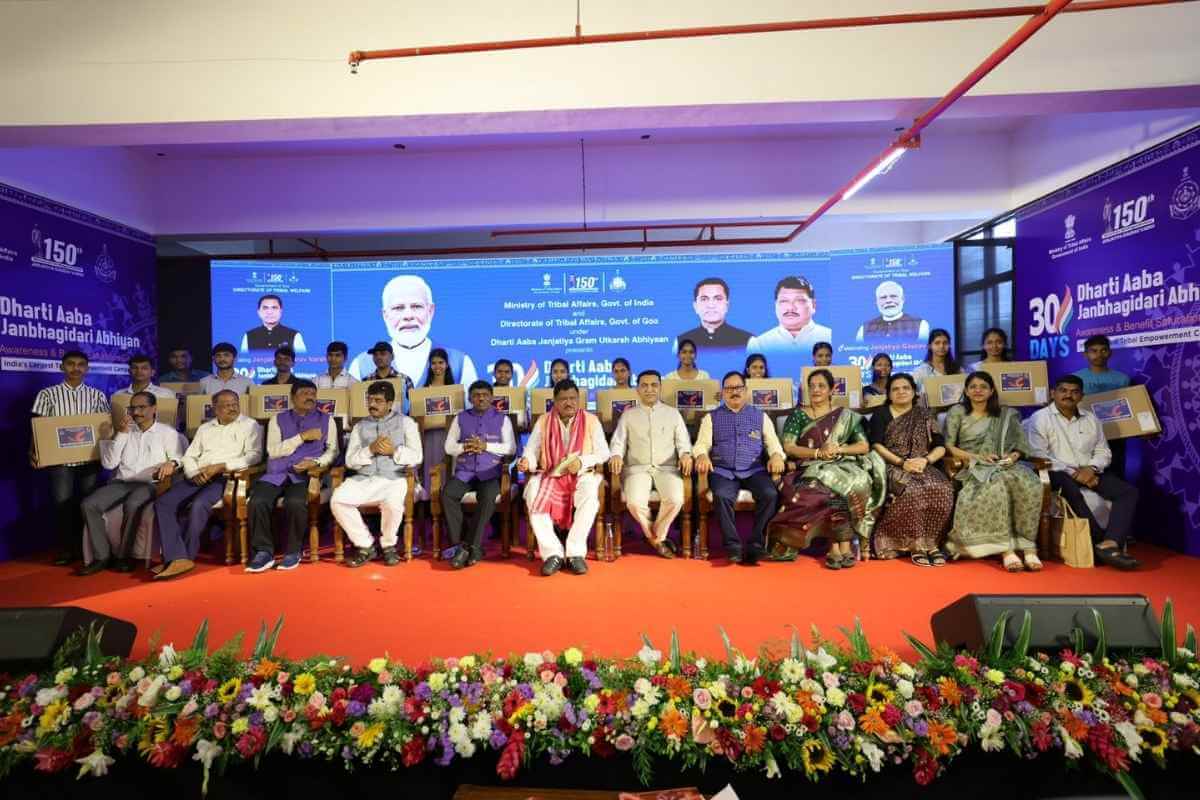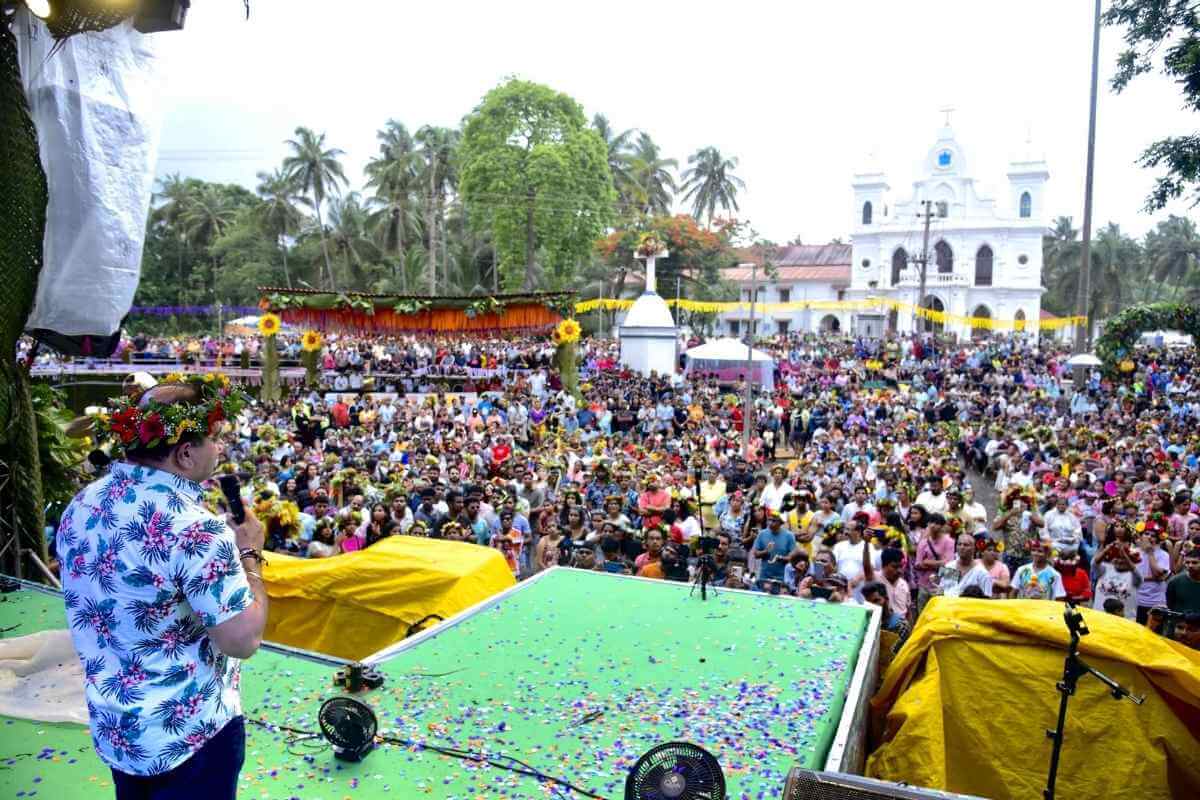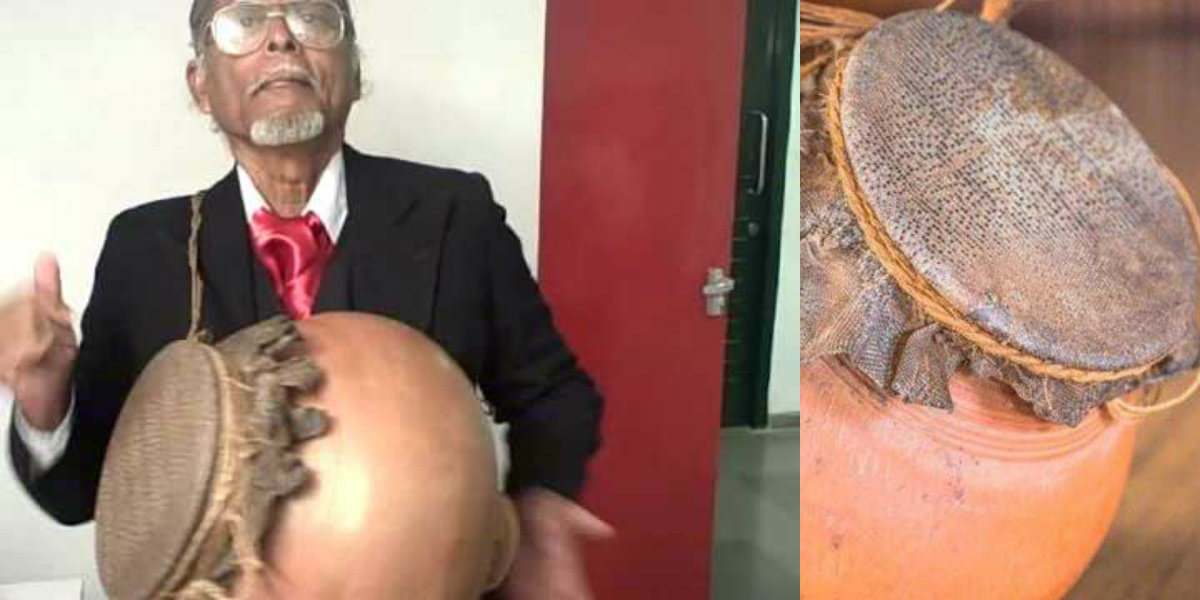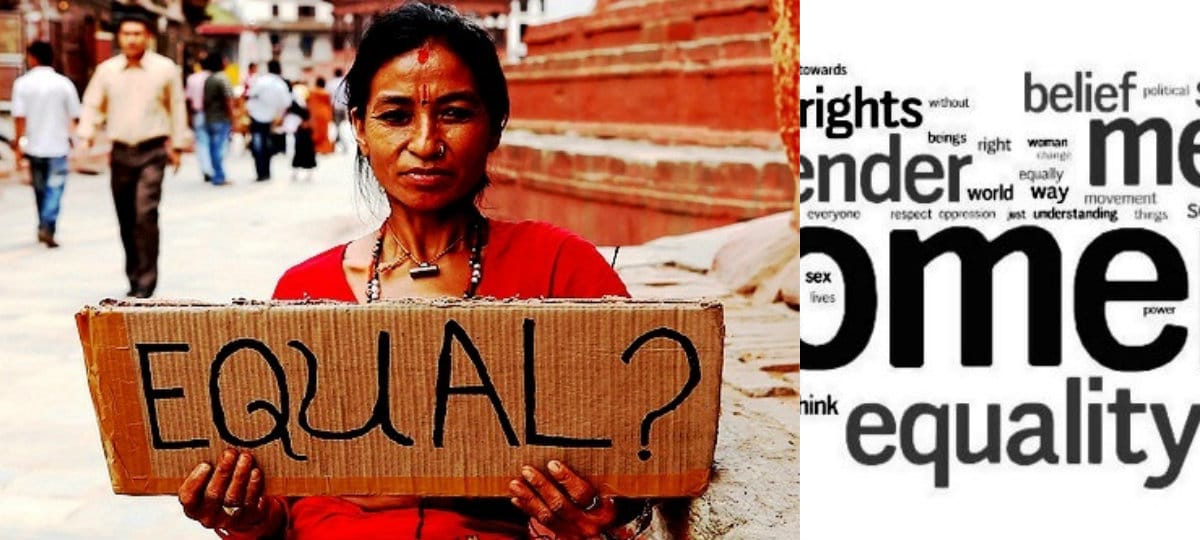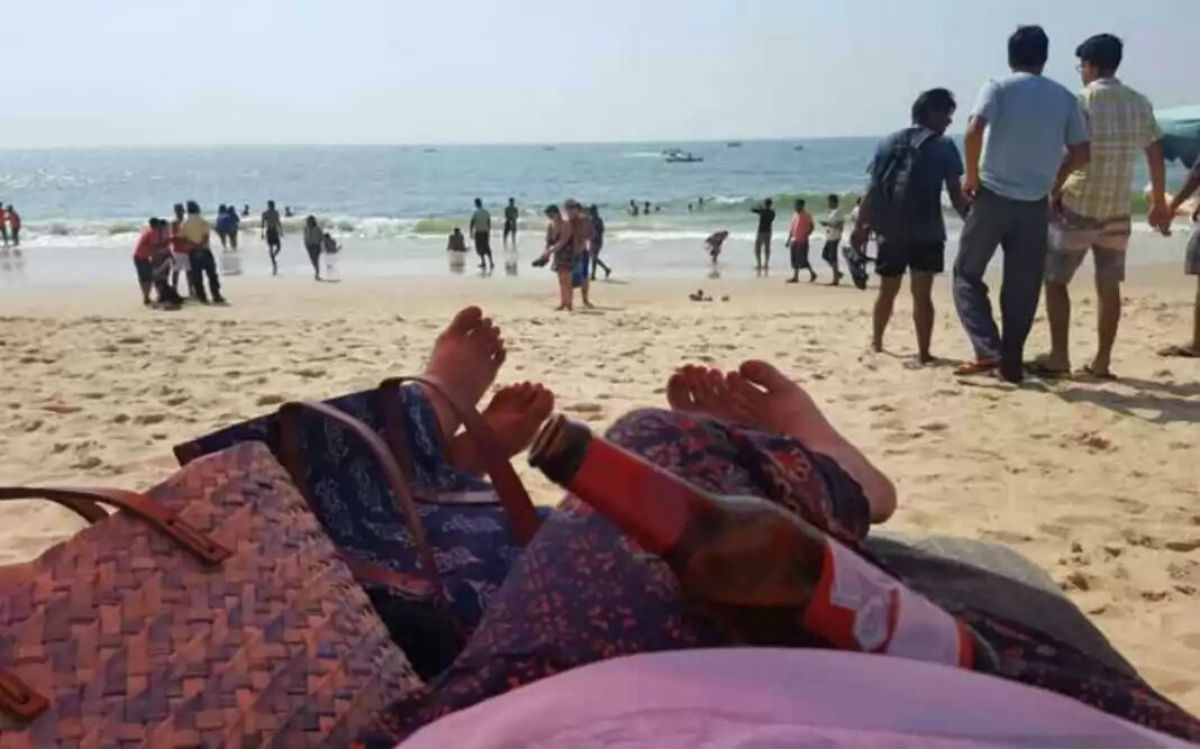My name is Anthony Gonsalves is one of the most famous songs that were picturised on the superstar of Indian film industry, Shri Amitabh Bachchan Ji, in an epic movie “Amar Akbar Anthony” but how many of you know that the song was a tribute from Shri Pyarelal Ji (Laxmikant – Pyarelal duo) to the legendary Goan composer and the music arranger of the Indian music industry, Bab Anthony Gonsalves. Mr. Anthony Gonsalves lived his life away from the limelight of Bombay film industry, in a small scenic village of Majorda, near Margao in south Goa. He was the first and the only person from Goa to receive the prestigious Dadasaheb Phalke Award. Although he has done a big contribution towards the Indian industry of Music very few people in Goa are aware of this fact. This story is a tribute of Incredible Goa to Mr. Anthony Gonsalves.
There is not much written or told in the local media about this legendary composer and music arranger but his achievements are unforgettable. Starting from the small village in Goa with no much resources Mr. Gonsalves has done the tremendous amount of contribution in Mumbai film industry in the 50s and 60s. In fact, Mumbai’s film industry had just started growing with an introduction of playback singing in the featured films. Mr. Gonsalves had worked with most of the legendary composers of Indian film industry in Mumbai. The names include Naushad, R D Burman, and Laxmikant – Pyarelal duo. The most unforgettable composition of Pyarelal Ji ‘My Name is Anthony Gonsalves’ was the tribute to his Guru (teacher) Mr. Anthony Gonsalves.
In fact, I am so much honored and lucky to write this piece of article in the honor of the legendary music arranger from Goa Mr. Anthony Gonsalves, as I share my birthdate with him. Bab Anthony Gonsalves was Born on June 12, 1927, in a small village of Majorda in south Goa. He had music running in his blood. His father was a composer but he spent all his life teaching music to the young enthusiasts from the village. I was not fortunate enough to meet Bab Gonsalves, but I feel privileged that I am writing this article on his life with the help of inputs provided by his daughter Ms. Laxmi Gonsalves.
Laxmi presently lives in Majorda at their ancestral house where Mr. Gonsalves lived most part of his life. The place is located in a scenic village around 40KM from the capital city of Goa. While I was on my way to Mr. Gonsalves Mansion to meet Ms. Laxmi Gonsalves for a scheduled meeting with her, I realized that people of the village still do not recollect Mr. Gonsalves but they know Ms. Laxmi Gonsalves and that is how I finally managed to reach the blessed house where the legendary musician lived. I must say that place still has the soul of Mr. Gonsalves in there and I could feel the vibes of it.

Ms. Laxmi Gonsalves, a very down to earth and humble personality, welcomed me to her place with a pleasant smile. She told me a lot about her father and his journey to the Bollywood and then to America and finally back to Goa. “My father was born in the village of Marjoda in the year 1927 and his father was a choirmaster in the church, so he used to teach reading and writing music,” said Laxmi. According to Laxmi Mr. Gonsalves had started showing an exceptional inclination towards the music right from the age of three. “He was a child prodigy, at the age of three he started showing highly tremendous inclination towards the music by picking up the violin and playing. My grandfather noticed it and took him to the church and from there he started playing with my grandfather in the church choir,” she said.
According to Laxmi, Mr. Gonsalves started assisting senior Mr. Gonsalves at the age of 6. “My Grandfather used to teach music to the village boys and since in those days music was the form of education and there were no music schools and no formal education was available in the village. These boys used to stay at our place free of cost and my grandfather used to teach them music,” She narrated. According to her, the priest from Guardian Angel Church took her father at the age of 12 to play the music in church but within two years Mr. Gonsalves returned back to Majorda.
After learning little more from his father Mr. Gonsalves decided to leave for Bombay in the search for more opportunities. He was just 16 when he decided to go to Bombay to which his father did not approve. But Mr. Gonsalves remained adamant on his decision. According to Ms. Laxmi, the decision of going to Bombay was good since in Goa there were no opportunities in those days. “My father told my grandfather that there is no point in staying in Goa and face the hardship. He had three growing sisters and father’s income was also not up to the mark since he was more into social work. He used to teach children for free and besides that, he used to provide them with accommodation and food,” said Laxmi.
According to Laxmi the story of the departure of Mr. Gonsalves was very interesting. On the one side his father was not allowing Mr. Gonsalves to go to Bombay and another side his brother and sisters were helping him to go to Bombay and finally Mr. Gonsalves managed to escape to Bombay with the help of his Aunt against the wish of his father. If he had to stay back in Goa then perhaps we would have never had a legendary Anthony Gonsalves who left his deep marks on the Indian music industry.
Finally, Mr. Gonsalves landed in Mumbai and got his first break with legendary music composer of Bollywood Shri Naushad Ji. At the age of 16, he started as Violinist in the Naushad camp. According to Laxmi, this is the place Mr. Gonsalves got exposed to Indian classical music. “His earlier learning of music had a Gregorian (Western Classic) influence and while in Mumbai he got exposed to Indian classical music like Ragas and Sargam. The Indian classical music does not have notes like western music but it works more on practice and learning process,” narrated Laxmi.
In Bombay (now Mumbai) Mr. Gonsalves joined the classes for learning the Indian classical (instrumental) music. After his all day work he used to come home and practice the same. There he learned to read and write in Devanagari script. He was the fast learner. “While he was at home after coming back from Mumbai he used to always tell us that one is never too old to learn anything since learning is a process that remains with you until the end. I have seen my father, he always remained busy with something or the other. He used to read and take down the notes. He never liked to sit idle for a single minute,” said Laxmi.
According to Laxmi, his father was in Mumbai until the age of 30 and after that, he went to America as by the time the picture in Mumbai film industry had started changing and Mr. Gonsalves found it difficult to cope up with the situation there. “He moved to America at the age of 30 and there my father met my mom. My mom was perusing her studies in fine arts in the US. My Mom is originally from Merces and she belongs to a well do family,” said Laxmi.
When I asked her why Mr. Gonsalves went to the US leaving the film industry of Mumbai that was growing, she said “My father did so much for the music industry of Mumbai but he never got the due credits for it and when he got the call from Walt Disney to compose the music for the animated film produced by them which was supposed to be approved by the government of India he had to face lot of hardship and insult from the Union Information and Broadcasting Ministry of India. According to Laxmi, the major reason behind leaving the India was the rude behavior of the Union Information and Broadcasting Minster towards him.
“When he got an opportunity from Walt Disney for providing music in their animation film the offer was supposed to come from the Government of India for the music and my father worked on it and wrote the script and also wrote the entire music that took six months. After that, he was supposed to take an approval of Indian government and the same was to be done through the Information and Broadcasting Ministry of India. At that time Pandit Jawaharlal Nehru was the Prime Minister of India. So finally my father went to Delhi to meet the Information and Broadcasting Minister, who insulted my father saying that how a Christian music composer can create the Indian Music and told him to get lost,” she narrated.

According to Laxmi his comeback to Goa was due to the death of his father. “My grandfather died and there was no one to look after at an ancestral house we had in Goa. Neighbors started writing letters saying the house is about to collapse and it needs an immediate attention and then he decided to come back to Goa,” said Laxmi. When they came to Goa, their house was looking almost haunted place which they had to restore it back to the normal from the scratch.
According to Ms. Laxmi, Mr. Gonsalves was also given an opportunity to become the director of Kala Academy. “There was a Priest, who had helped Daddy to make him the member of General Council of Kala Academy. Subsequent to that my father went and attended 2 meetings. Mr. Pratapsingh Rane was the chairperson of Kala Academy then. My daddy told them that he has written some music books and if he can get them but Mr. Rane said to get them next time will go through your books and put them in front of the committee. With these words my daddy got angry he said that they are music books not storybook and he walked out of the meeting and never went back for those meetings again,” she said.
Mr. Anthony Gonsalves always believed in giving to others and never asked back anything in return. In 1962 when he did the concert with Laxmikant Pyarelal in Goa and he donated the entire amount (Rs. 7 Lakh) to the government of Goa. He handed over the corpus to Bhausaheb Bandodkar, the first CM of Goa. “But they never remembered the contribution of my father,” said Laxmi. In those days Rs. 7 Lakh was a huge sum of amount.
Laxmi told me that his father always used to tell her that there are no shortcuts in the life and never achieve anything by becoming the copycat. According to Laxmi, he was thinking of forming an institution for music in Goa. He had many plans but that never happened since there was no support from the government machinery in Goa and my father never believed in asking. He only kept giving this world,” she said.
Anthony Gonsalves left this world for the heavenly abode on 18 January 2012. His contributions to the Indian music industry will never be forgotten. Anthony Gonsalves was a violinist of par excellence the legends of Indian film industry calls him Guru (teacher) but it was unfortunate that Goa and Goans did not give him the due credits theta he actually deserved. If after reading this story you feel that Mr. Gonsalves really deserves credits for his contributions then please share the information with others and let the world know who Anthony Gonsalves was.
Note: The special DVDs made on the life and journey of Anthony Gonsalves has been produced by the Goan producer Mr. Shrikant Joshi & Mrinalini Joshi and the same are available at the music stores near you. In case you wish to have them, please get in touch with Mr. Rohan Joshi on 99225 88007
Achievements
In 1958, Gonsalves founded the Symphony Orchestra of India (as distinct from the Symphony Orchestra of India) featuring playback singers Lata Mangeshkar and Manna Dey as soloists, the works were performed in the quadrangle of St. Xavier’s College, Bombay.
In 1965, he quit the film industry and went to the United States, via a traveling grant from Syracuse University in New York. He became a member of the American Society of Composers, Publishers, and Authors, and later in returned to India, settled in his ancestral village of Majorda in Goa, and continued composing music, though he never joined the Hindi films again. He died in 2012 of pneumonia and hypotension.
IMAGE CREDIT: RAJAN PARRIKAR

